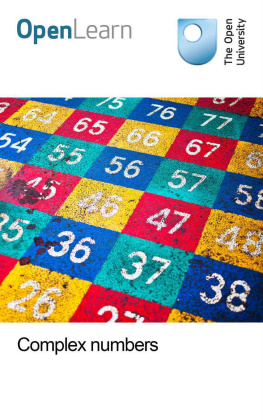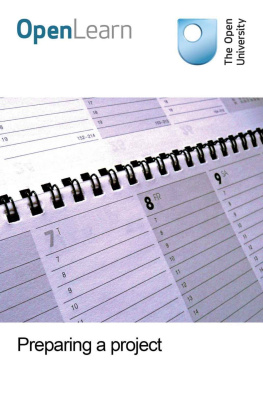French
Learn French For Beginners Including French Grammar, French Short Stories and 1000+ French Phrases
Copyright 2018
All rights Reserved. No part of this book may be reproduced in any form without permission in writing from the author. Reviewers may quote brief passages in reviews.
Disclaimer: No part of this publication may be reproduced or transmitted in any form or by any means, mechanical or electronic, including photocopying or recording, or by any information storage and retrieval system, or transmitted by email without permission in writing from the publisher.
While all attempts have been made to verify the information provided in this publication, neither the author nor the publisher assumes any responsibility for errors, omissions or contrary interpretations of the subject matter herein.
This book is for entertainment purposes only. The views expressed are those of the author alone, and should not be taken as expert instruction or commands. The reader is responsible for his or her own actions.
Adherence to all applicable laws and regulations, including international, federal, state and local laws governing professional licensing, business practices, advertising and all other aspects of doing business in the US, Canada, UK or any other jurisdiction is the sole responsibility of the purchaser or reader.
Neither the author nor the publisher assumes any responsibility or liability whatsoever on the behalf of the purchaser or reader of these materials. Any perceived slight of any individual or organization is purely unintentional.
Table of Contents
Part 1: French
An Essential Guide to French Language Learning

INTRODUCTION
French is currently one of the most widely used languages on the international scene. It is an official language in 29 countries.
Do you want to learn French quickly? There is no miracle recipe; you have to start with the basics. Or perhaps you already know the basics, but you still have difficulties in assimilating this charming language. Do not worry; you're not alone.
Perhaps this is the first book that introduces you to the French language, or you have already read others, but you have given up. Rest assured, you will learn to speak in a simple and clear way, just like me when I started with this rich language that is French. French tends to have a reputation among English speakers as hard to learn, but its easier than you might think. Many courses of language study assume you are going to a particular location for vacation, and so the lessons begin with everyday survival phrases that people use. There is some of that in this book; however, consider that it is "verbs" that make a language. Its important to learn the language in a broader sense as well.
During each chapter, you will be taught the fundamentals of the language, and each part will be illustrated with examples, followed by practical exercises.
If you want to learn the basics of French for speaking, reading, and writing, youll need to learn each chapter in the order they are presented.
Here is your first book on French, and its objective is simple:
To introduce you to the French language.
CHAPTER 1 - PRONUNCIATION
Learning a language in its written form is easy. The hardest part is to assimilate pronunciation, because each language has its own phonetic sound.
Indeed, some pronunciations are unique to the French language and do not exist in English. When you start learning French, the pronunciations can seem tricky. This is especially the case because it has a lot of sounds that don't exist in English. However, French pronunciation does not have to be difficult.
1.1 The French alphabet
The French alphabet looks very similar to the English alphabet, but there are a few differences. There is a total of 26 letters in the French alphabet. Standard French contains 13 oral vowels and up to 4 nasal vowels, but there are also 5 additional accented letters that can be applied to change the sound of a letter.
The words between [...] are phonetics in English.
a A [ Ah ] b B [ Ba(y) ] c C [ Sa(y) ] d D [ Da(y) ] e E [ Uh ] f F [ayf] g G [zhay] h H [Ash] i I [Eeh] j J[zhee] k K [kah] l L [ell] m M [hum] | n N [hun] o O [Oh] p P [Pay] q Q [Coo] r R [err] s S [ess] t T [tay] u U[u] v V [vay] w W[doub-leh-vey-] x X [eeks] y Y [ee-grek] z Z [zed] |
1.1.1 Vowels, consonants, and their combination
Vowels:
A e i u o y
Consonants:
B c d f g h j k l mm n p q r s t v w x y z
The French "R" is pronounced Errr, as when you are about to spit. This is the best example to describe its sonority because only a few languages use the famous French "R" sound. When you attempt to pronounce it correctly, people will see that youre trying, so theyll be willing to help and encourage you. Keep practicing, softening it up a bit each time. Its similar to a Spanish J sound.
The "Y" is pronounced as "ee" in English .
The "H" is silent in French; it does not accentuate the word that contains it.
The Silent h
The h in French is a 100% silent letter no matter where its located in a word. The only exception to this is when the preceding letter is c, in which case the ch combination makes a sh sound or k sound.
"Housse" (Cover), for example, is pronounced "Ouss."
Chaos sounds like Kaoh.
Single s, Double s or z?
But its just an s, right? Pronouncing the s is more complicated than it seems. The double S or Ss is pronounced like the end of the word Bass, for example.
The simple S is pronounced like Poison.
The difference between ait and et
When you speak the following sentences, does the conjugation of the verb parler sound the same?
Jai parl avec lui
Je parlais avec lui
Many French learners will pronounce these in exactly the same way, but they should not sound the same. This is surprising, but true.
and et are ponounced eh, while Ait or ais are pronounced like May with the y sound at the end.
1.2 Combination of vowels
The combination of vowels in French gives a different sound that does not exist in the English language.
Ai [eh]
Ue [uay]
Oi [wah]
Oui [wee]
Ui [uee]
1.2.1 Combination of consonants with consonants
The combination of consonants with consonants is pronounced as in English (cl, gu, qu etc ...), except for the following:
Ch [Shuh] but not Tch
Tr [Trrr] but not Tchr
1.2.2 Combination of vowels with consonants
We have seen the combinations of vowels with vowels; here we shall see the combinations of vowels with consonants. Why? Because their sound is different from English. They are combinations that are used in almost every word in French.
Ail ille eil [ahy], [eey], [ayy]
On [On] (The "N" is silent. We do not pronounce it, we just keep the sound of the o in English.)
Dropping the L in Your il and Your elle
Pronouncing your il and elle like French speakers is easier than pronouncing it the proper way, and is an effective way to make your colloquial speech sound much more natural.
Consider the following two sounds:


















